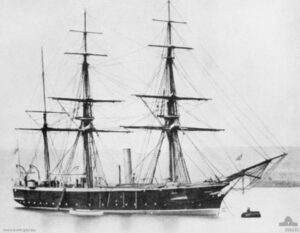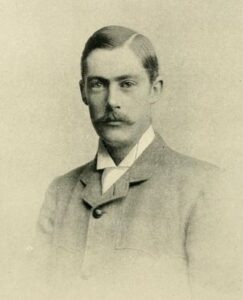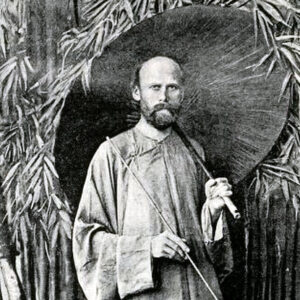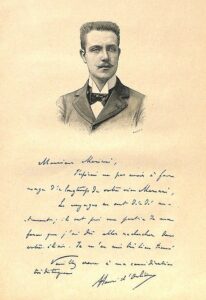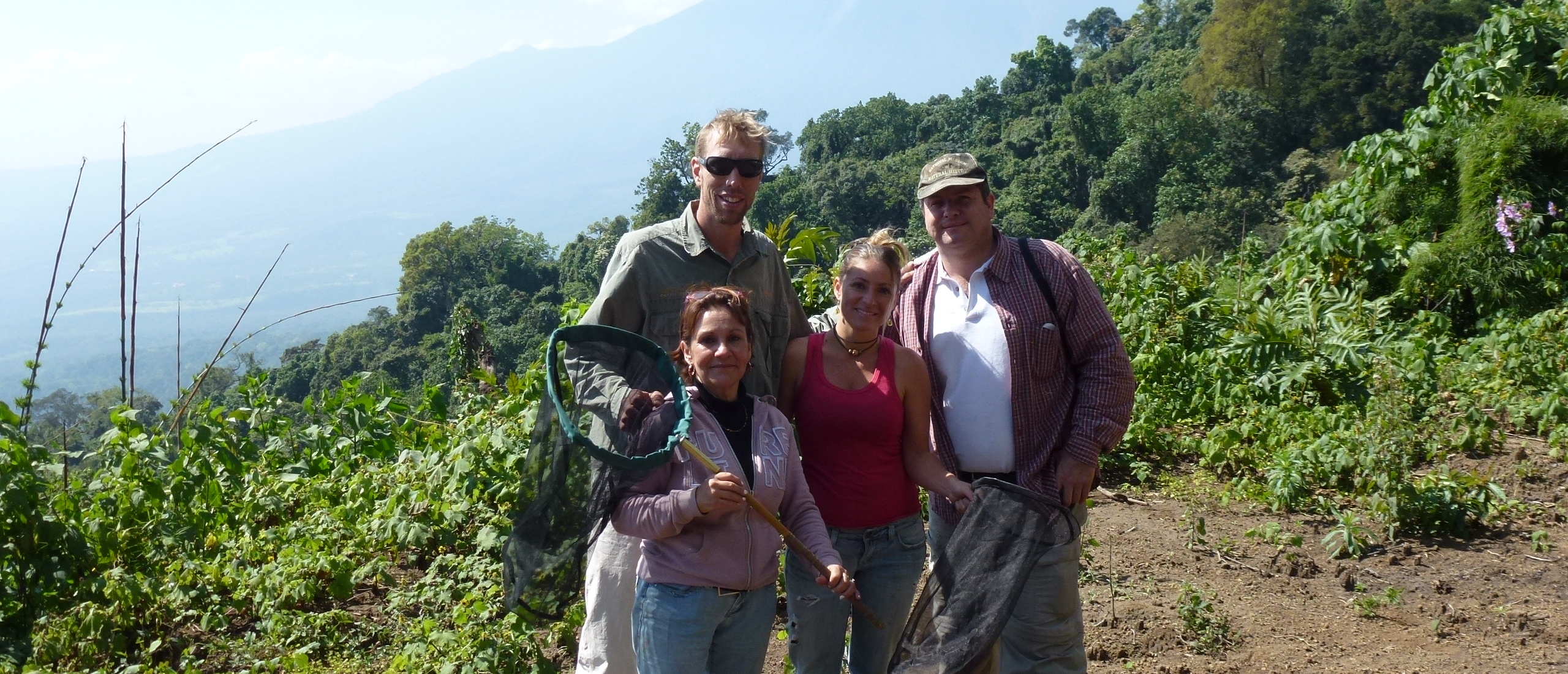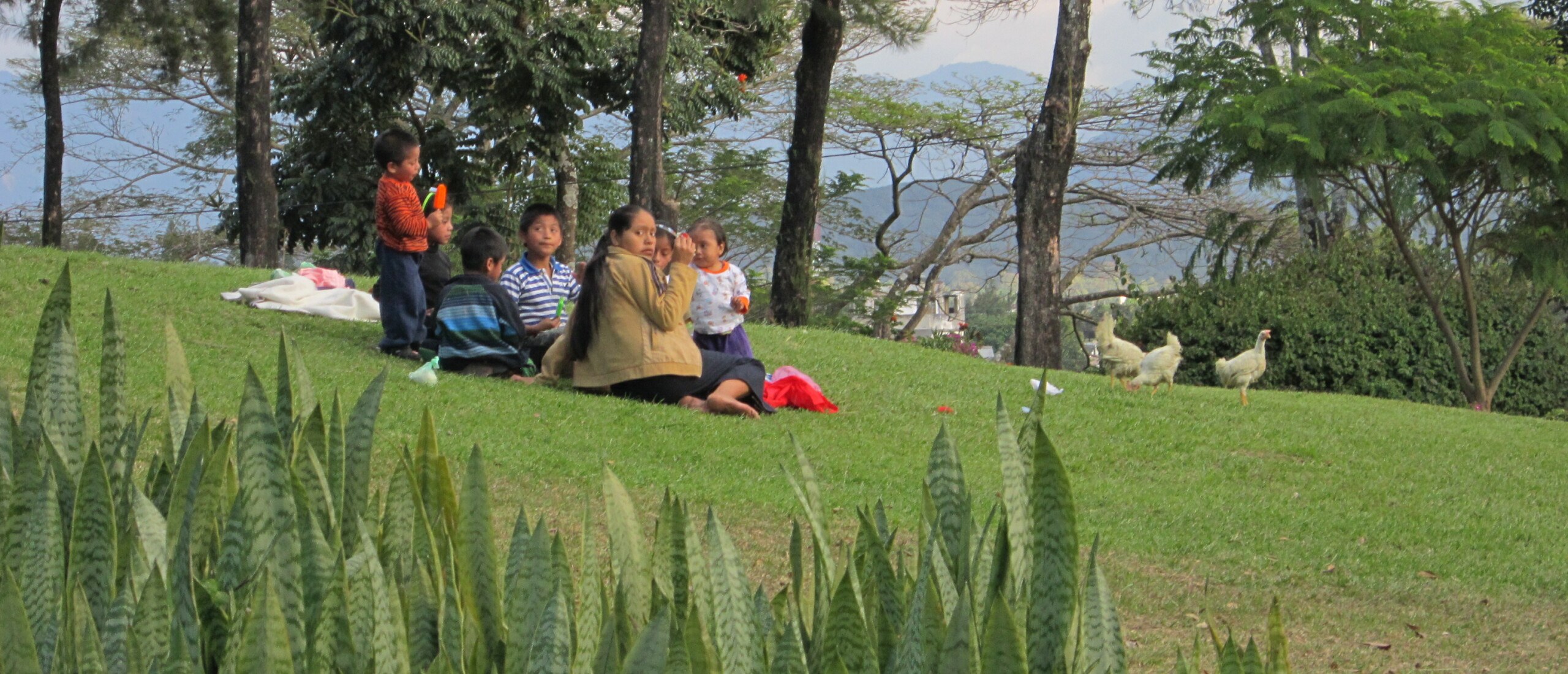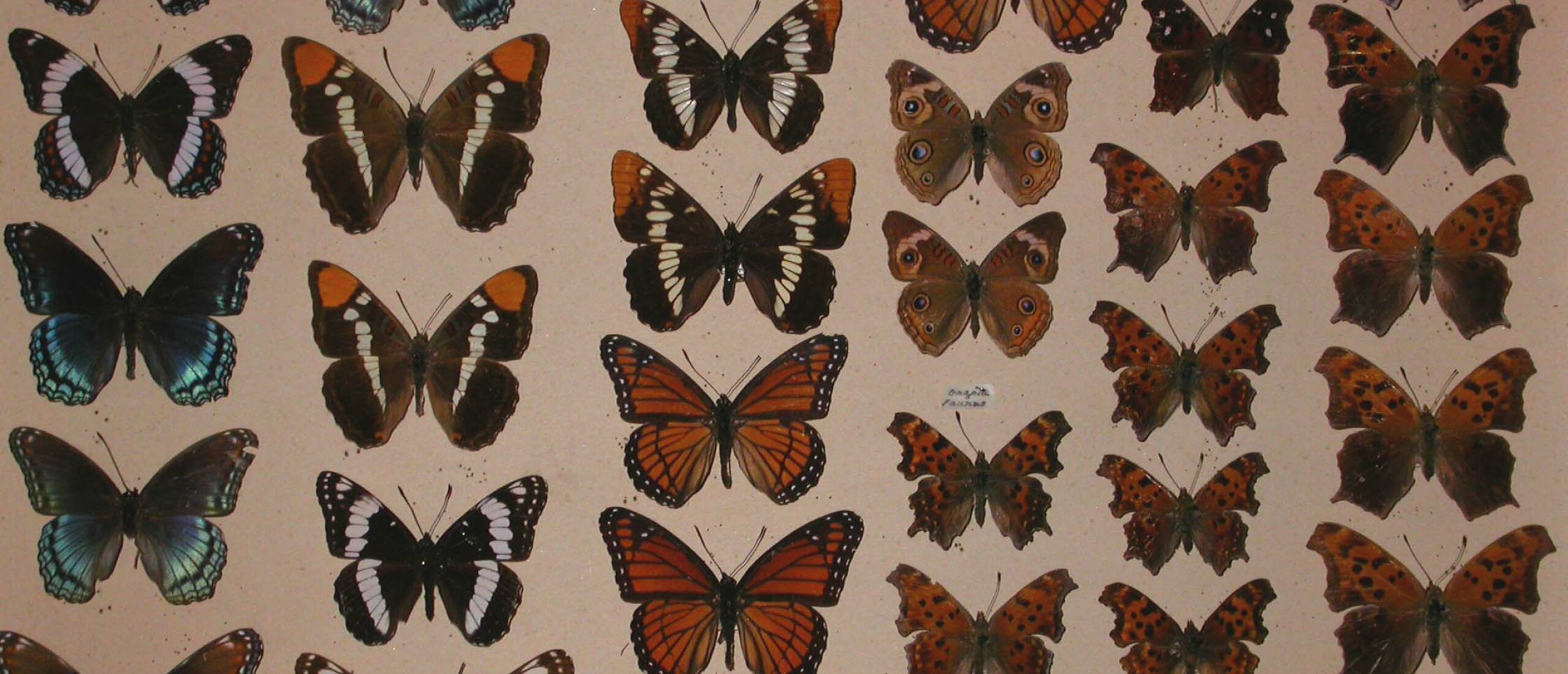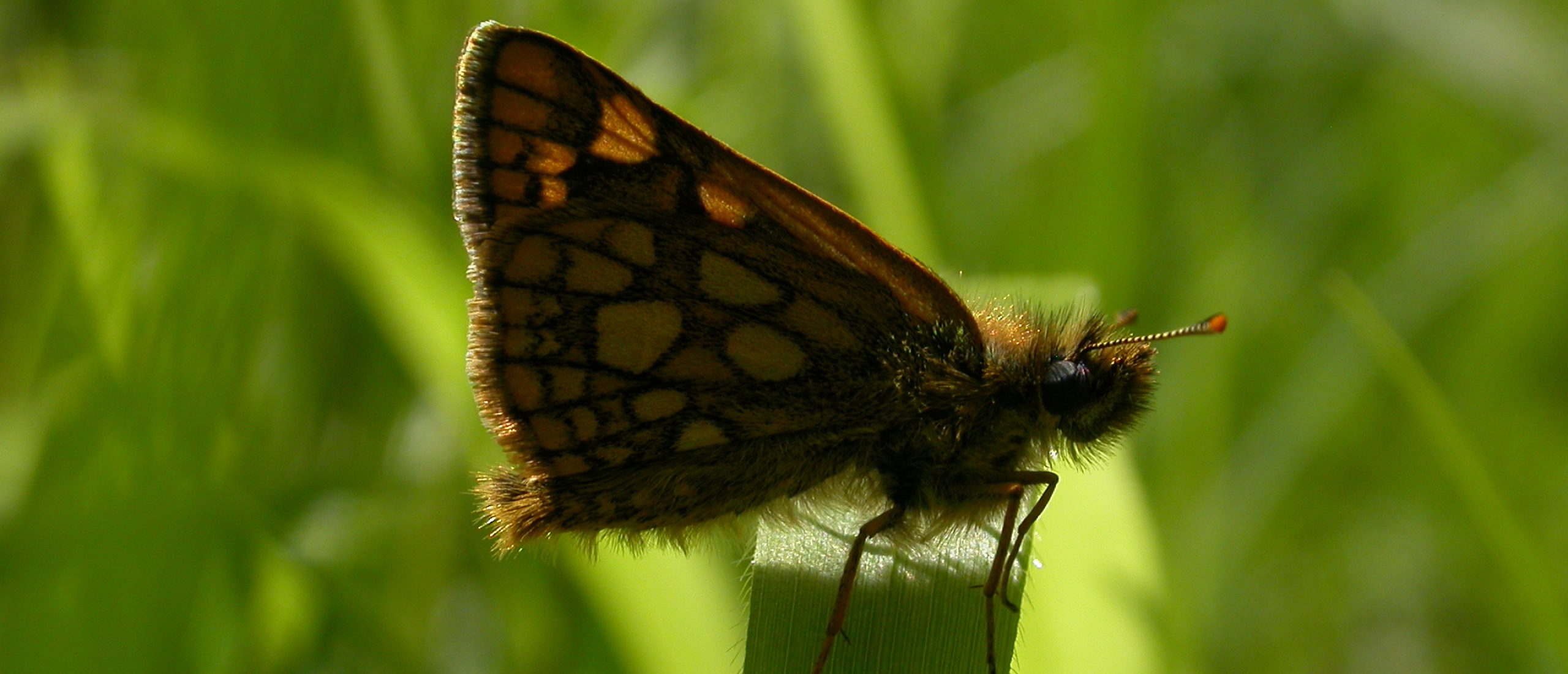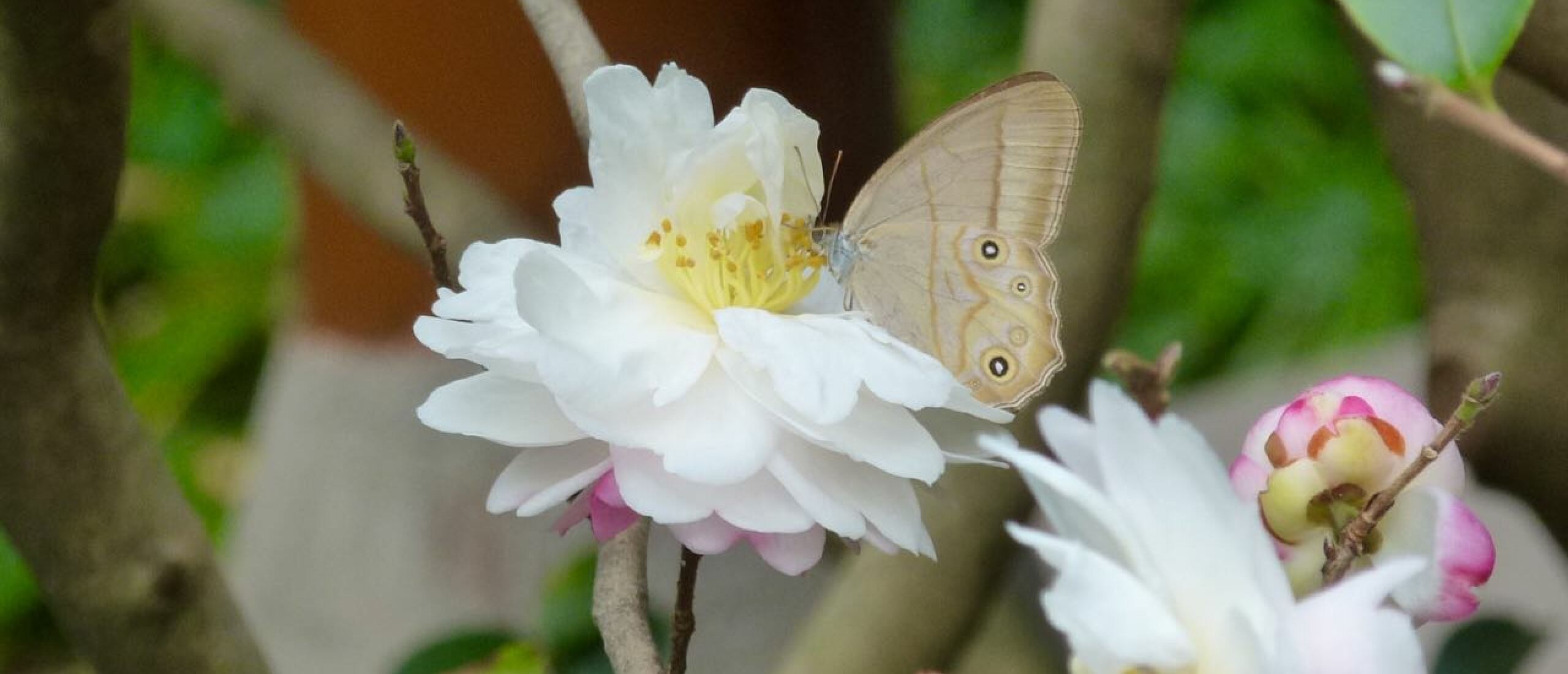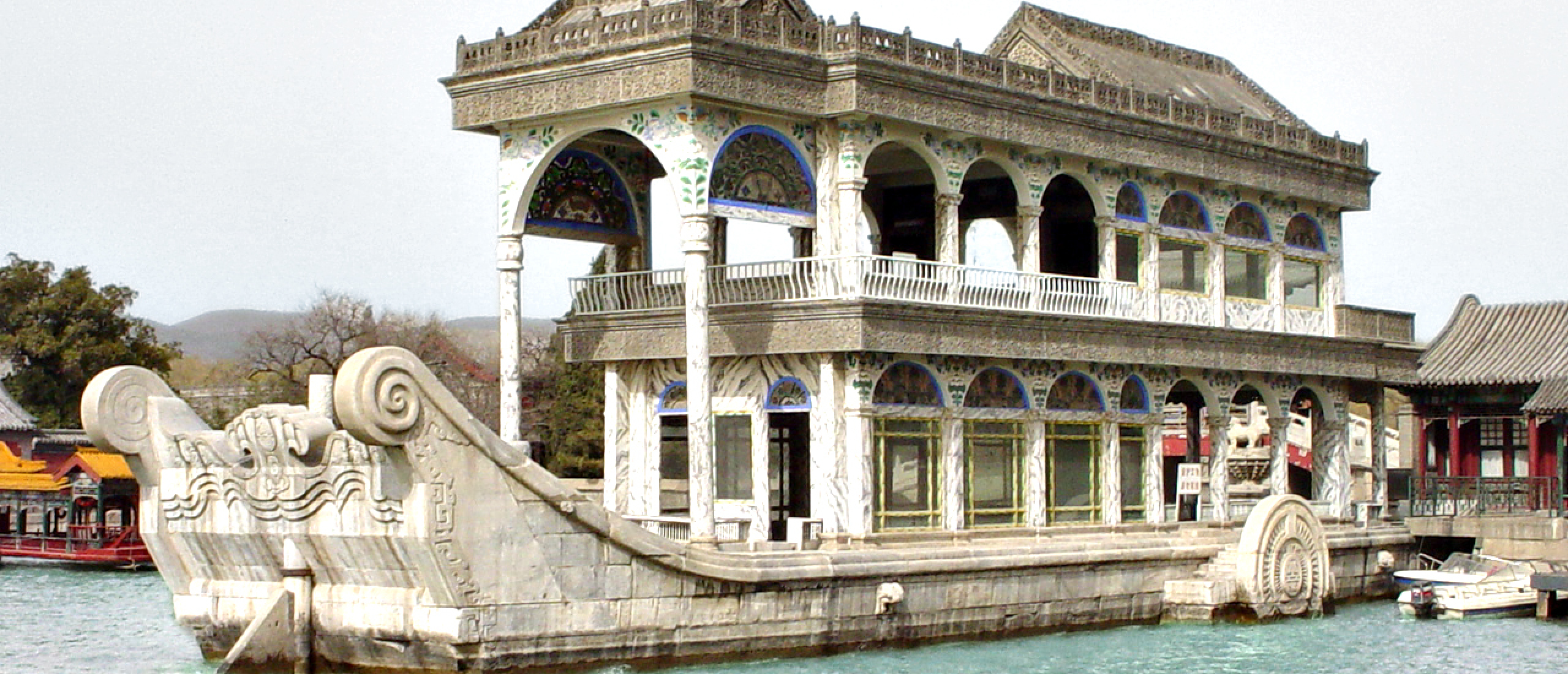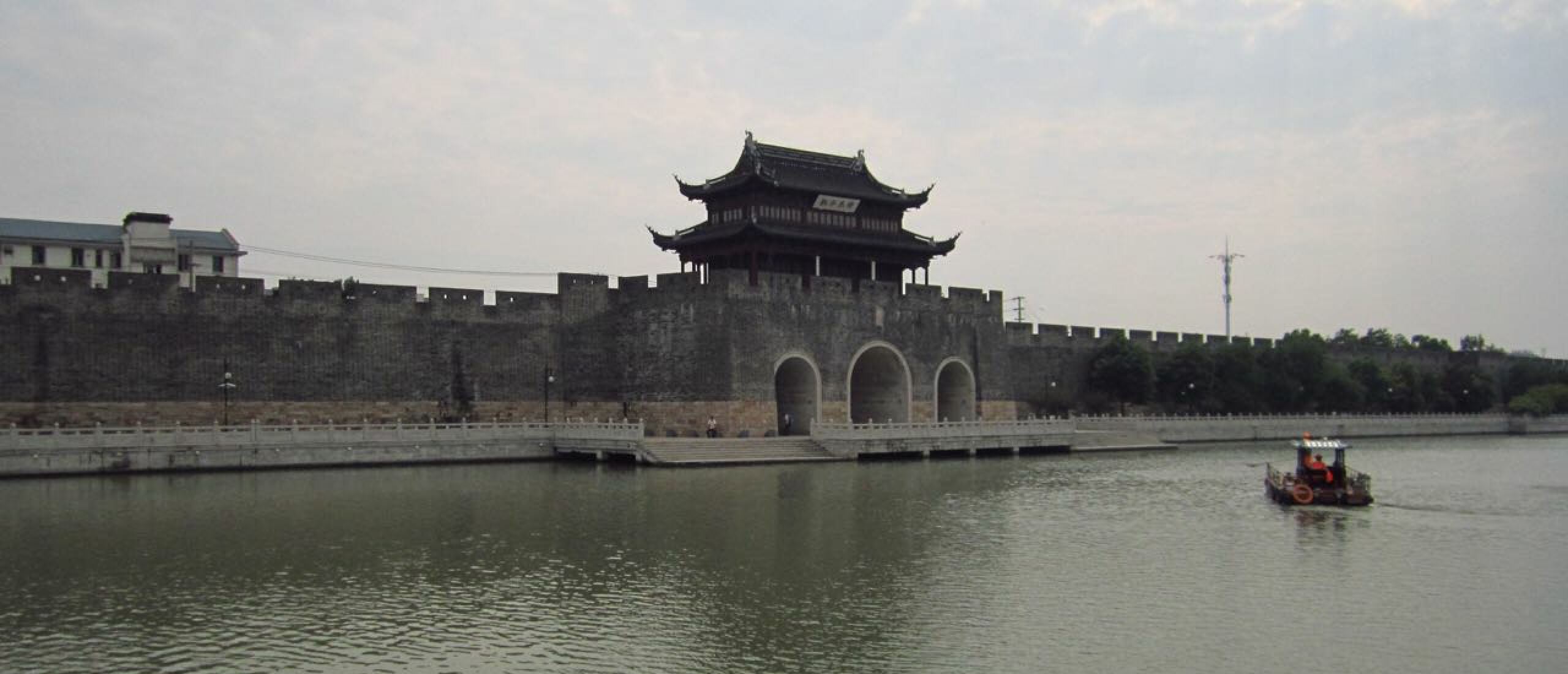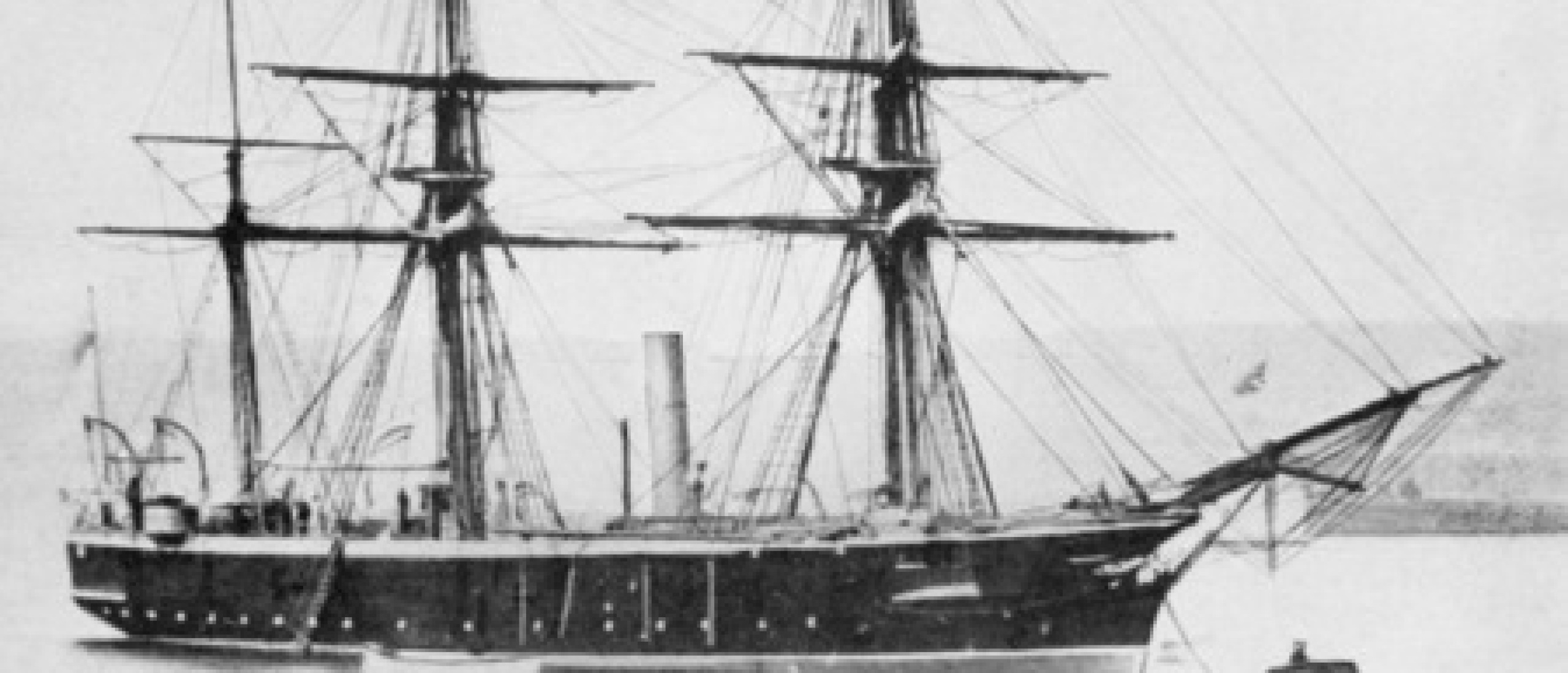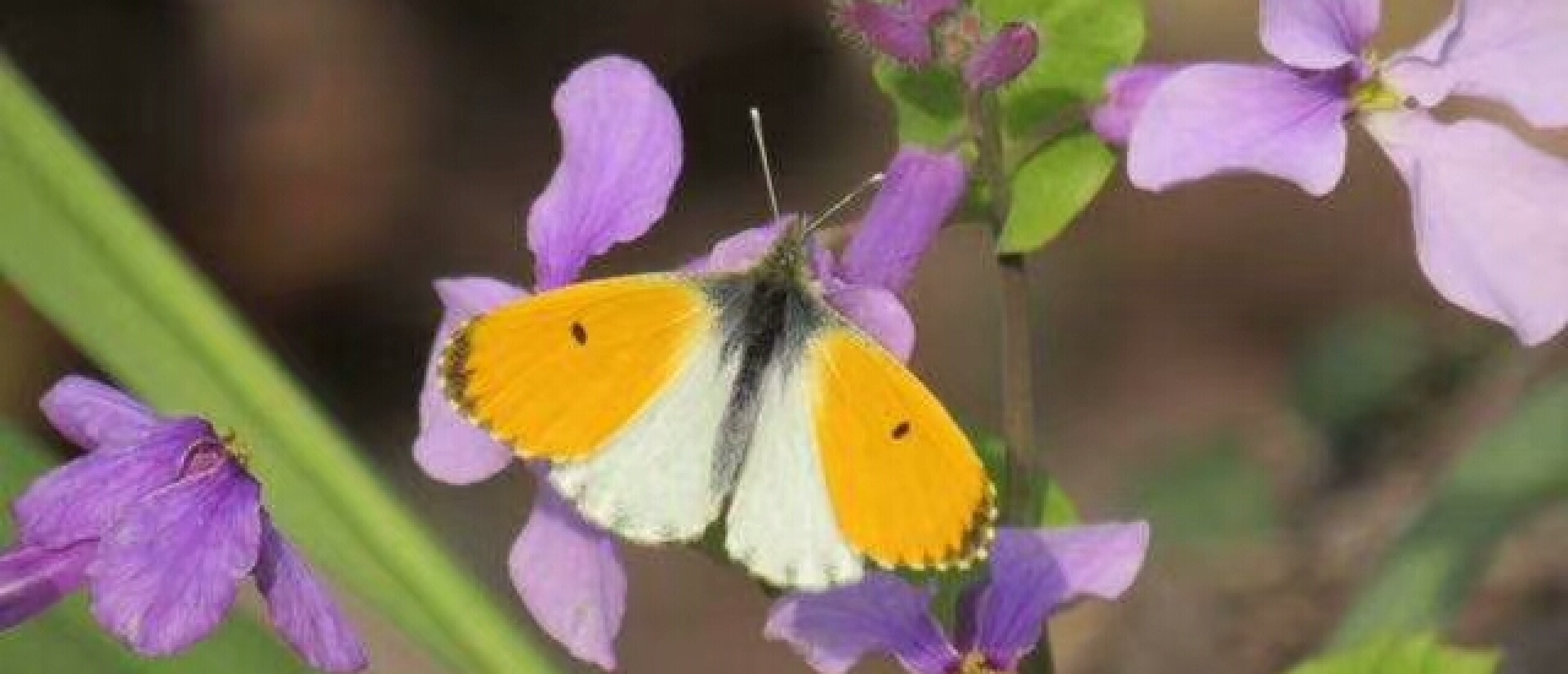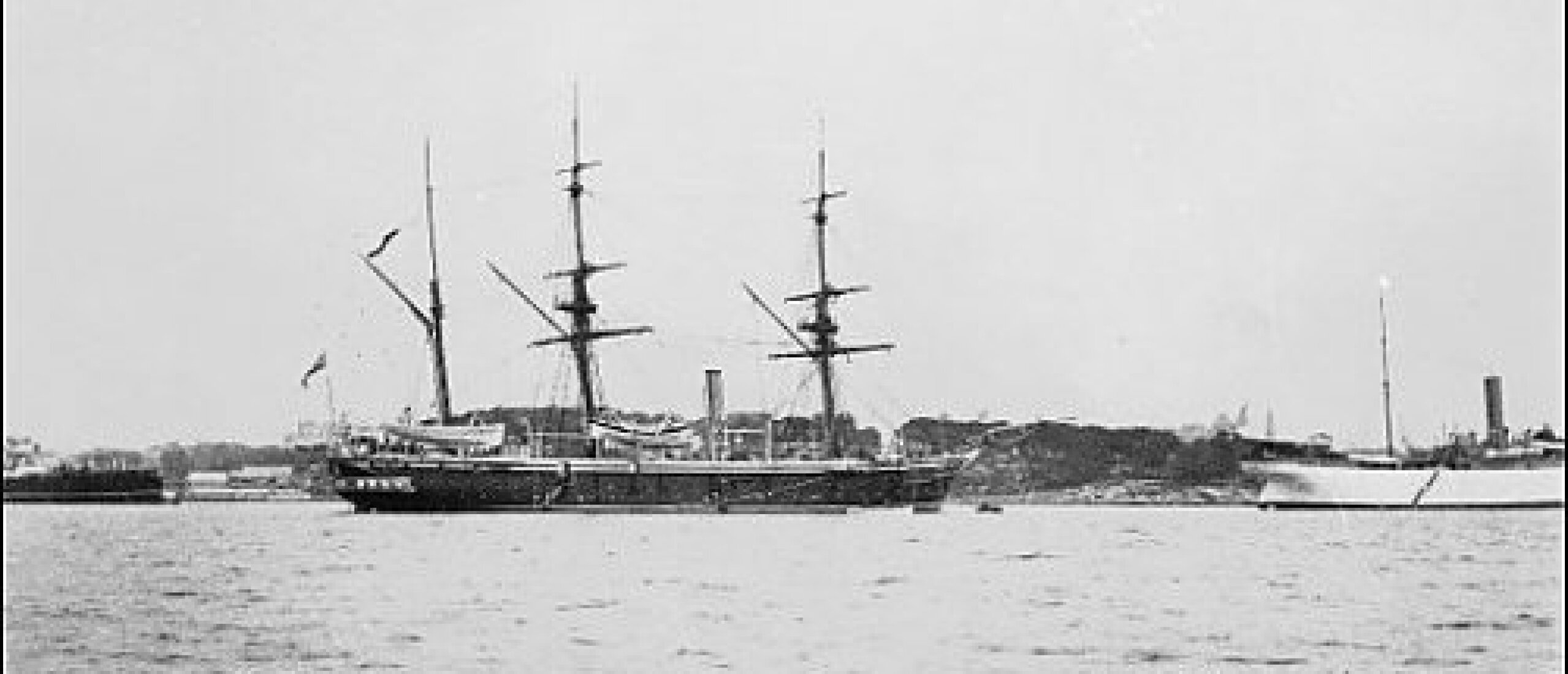
In the virtual footsteps of 19th century natural historians in East and North-east Asia During these days of enforced immobility, even if my body cannot range across the world, at least my mind can. One of the activities that has kept me from going mad with frustration has been reading, annotating and transcribing the entomological journals of my great great uncle, Cdr James John Walker FRES FLS MA (Honoris Causa) OXON, 1851 – 1939. I have been examining his voyages on board HMS Kingfisher between 1881 and 1884 (UK, Azores, Cape Verde, Uruguay, Straits of Magellan, Chile, Peru, Ecuador, Panama, Costa Rica, Mexico, USA, Canada, Juan Fernández (Robinson Crusoe) island and then home again via the Straits, Cape Verde and Madeira), and HMS Penguin, which arrived in Hong Kong in December 1891, following a long voyage from the UK to Uruguay, Chile, Peru and western Canada, then across the Pacific via French Polynesia, to New Zealand and Australia, and then through the Dutch East Indies and the Philippines. She remained in Hong Kong until April the following year, when she departed and sailed to Shanghai, and was then engaged in charting the Zhoushan (Chusan) archipelago until December 1892. J J Walker then remained in Hong Kong until May 1893, and then finally returned home via Ceylon (Sri Lanka) the following year.
The period that he spent in Hong Kong and eastern China is of particular interest to me at the moment, as I have done my own most recent exploring in that area between 2017 and 2020, and am familiar with virtually all the butterflies he recorded, although not the beetles. One of the fascinating things I am finding is that by researching Walker’s journeys, I am discovering an amazing series of links to other pioneers and natural historians, and thanks to the fact that most of his contemporaries’ writings are now in the public domain and available to read on the internet, I am able to voyage by means of their descriptions through Zhejiang, Manchuria, Ussuriland, Sichuan, Tibet and along the Yangtse river, all in the 1880s and 1890s. I am spellbound, in fact! The first book that attracted my attention was “An Irishwoman in China”, by Emily de Burgh Taylor, who describes J J Walker, who visited her and her husband in the mountain hamlet of Da-laen-saen, near Ningbo, in November 1892. We entertained guests in our bungalow that year, amongst them a fellow of the Linnean Society known to his intimates as " Bug W." He was a keen naturalist, and extremely well-informed, but "bugs" were his speciality. With a bottle of chloroform in one pocket wherewith to quiet his specimens, a bottle of ammonia in another wherewith to cure stings or bites, he fared forth in quest of beetles and beasties. “You will find such and such a beetle under that stone," he would remark, pointing to an apparently very ordinary one, and he was invariably right. He was greatly interested to find sea-water crabs at such an elevation, saying their family tree must date back to the time when those mountains were under the sea. On leaving, he shook hands heartily with me, saying he had enjoyed himself immensely, and had discovered sixty new specimens of bugs during his stay in our house!https://archive.org/details/irishwomaninchin00dalyiala After her stay in Ningbo, Mrs Daly and her family moved north to the treaty port of Newchwang (now known as Yingkou), in Manchuria, where like J J Walker’s brother Harry, she lived through the Boxer Rebellion and both the Sino-Japanese and the Russo-Japanese Wars. A guest of hers was the remarkable lady traveller Isabella Bird, who visited Newchwang in 1898 en route for Korea, a journey which see describes in her book “Korea and her Neighbours”, published by John Murray in 1905: https://archive.org/details/in.ernet.dli.2015.55448/page/n5/mode/2up Thrilling though these volumes are, it is really the entomologists that I have been concentrating on in recent weeks, and one mentioned by J J Walker is his contemporary, John Henry Leech (1862 – 1900), whose masterpiece “Butterflies from China, Corea and Japan”, published in 1892, contains a description of Leech’s own travels in the region, but also mentions his two most valued collectors, Antwerp E Pratt and Albert Kricheldorff, who travelled extensively in western China, amassing a huge collection of insects.
It turns out that A E Pratt also wrote a fine volume describing his adventures in those remote regions, published in 1892, “To the Snows of Tibet through China”, which I am currently deeply engrossed in reading: https://archive.org/details/tosnowsoftibetth00pratrich/page/n9/mode/2up
One of the characters with whom Pratt came into contact while collecting in Sichuan was another intrepid naturalist-explorer, Prince Henri d’Orléans (1867 – 1901), who travelled from Paris to Vietnam overland with Gabriel Bonvalot, who described that extraordinary journey in his book “De Paris au Tonkin à travers le Tibet inconnu”: https://archive.org/details/acrossthibetbein01bonv Prince Henri d’Orléans became famous in 1897, due to a duel which he fought, and lost, against Prince Vittorio Emanuele, Count of Turin. In several articles for Le Figaro, Prince Henri had described the Italian soldiers being held captive in Ethiopia, during the first First Italo–Abyssinian War, as cowards. Prince Vittorio Emanuele thus challenged him to a duel. The sword was agreed upon as the weapon of choice, as the Italians thought that duel with pistols, favoured by the French, was worthy of betrayed husbands, not of princes of royal blood. The duel with swords, which lasted 26 minutes, took place at 5:00 am on 15 August 1897, at Vaucresson, France. Vittorio Emanuele defeated Prince Henri after five reprises. Prince Henri received a serious wound to his right abdomen, and the doctors of both parties considered the injury serious enough to put him in a state of obvious inferiority, causing the end of the duel, and making the Count of Turin famous in Europe (source Wikipedia).
Even if I never travel again, at least in spirit I am on the move. Although I have no intention of ever fighting a duel, I would dearly love to visit some of the places described in these volumes, and perhaps I will really have a chance to do a serious study of the life and works of J J Walker at some future date, particularly if the opportunity to enter China again crops up once the virus nightmare is over.
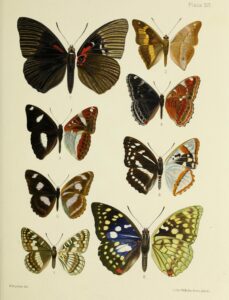 A plate from Leech's Butterflies from China, Corea and Japan
A plate from Leech's Butterflies from China, Corea and Japan


